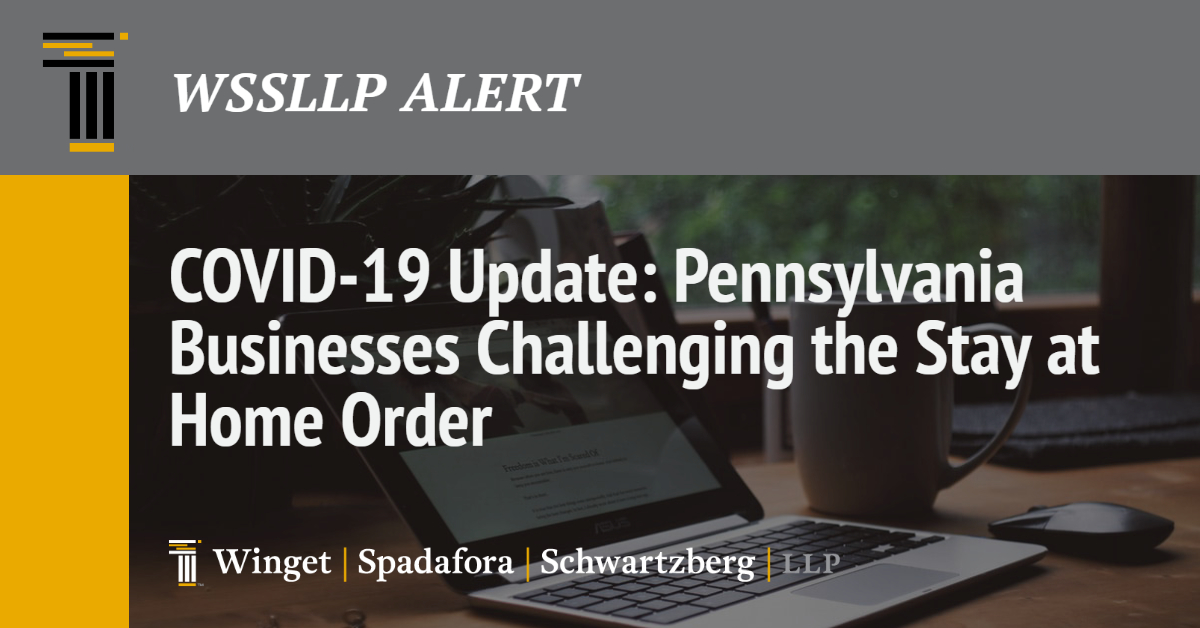On March 23, 2020, the Governor of Pennsylvania issued the first Stay at Home Order which applied to seven counties in the Commonwealth and was to remain in place until April 6, 2020. This Order requires residents to remain at home unless engaged in certain activities, such as essential travel, and permitted certain outdoor activities, among others. The Order also requires some businesses to cease in person operations (but for activities which can be completed remotely) unless they are considered to be life sustaining. The Order included a list of businesses that would be considered as life sustaining which ranged from healthcare providers to landscapers. The Order was amended on April 1st to apply to the entire Commonwealth of Pennsylvania and all of its 67 counties and is to remain in effect until April 30, 2020. As such, it applies to counties that have reported COVID-19 cases and those that have not reported any cases such as Jefferson, Elk and Fulton County. This was all in response to the COVID-19 virus pandemic which as of April 5, 2020 included 10,017 confirmed cases in Pennsylvania.
Businesses that were not considered as life sustaining and which had to suspend in person operations were effectively closed and employees laid off. Businesses could file for an exemption from the Order but the exemption deadline was April 3rd at 5pm. Certain provisions of the Order have been relaxed in limited situations and in response to objections to the breadth of the Order. However, other businesses that were not given an exemption and were not considered as life sustaining have begun to file lawsuits challenging the authority of the Governor’s Order. The Order cites to the Pennsylvania statute 35 Pa. C. S. 7301, Health and Safety and General Authority of the Governor, as the statutory basis to issue the Stay at Home Order. Certain constitutional rights have been relied upon in challenging certain aspects and applications of the Stay at Home Order. Objections to the Order such as this have seen changes. For instance, gun stores are now permitted to resume operations based upon 2nd Amendment rights.
These objections are challenging for Plaintiffs not only because the Pennsylvania courts are essentially closed but also when balanced against the concerns for the health and safety for the citizens of the Commonwealth.





